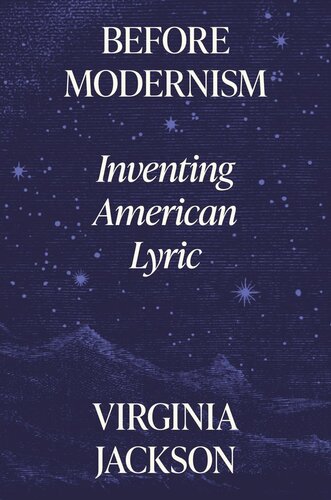

Most ebook files are in PDF format, so you can easily read them using various software such as Foxit Reader or directly on the Google Chrome browser.
Some ebook files are released by publishers in other formats such as .awz, .mobi, .epub, .fb2, etc. You may need to install specific software to read these formats on mobile/PC, such as Calibre.
Please read the tutorial at this link: https://ebookbell.com/faq
We offer FREE conversion to the popular formats you request; however, this may take some time. Therefore, right after payment, please email us, and we will try to provide the service as quickly as possible.
For some exceptional file formats or broken links (if any), please refrain from opening any disputes. Instead, email us first, and we will try to assist within a maximum of 6 hours.
EbookBell Team

4.0
16 reviewsHow Black poets have charted the direction of American poetics for the past two centuries
Before Modernism examines how Black poetics, in antagonism with White poetics in the late eighteenth and early nineteenth centuries, produced the conditions for the invention of modern American poetry. Through inspired readings of the poetry of Phillis Wheatley Peters, George Moses Horton, Ann Plato, James Monroe Whitfield, and Frances Ellen Watkins Harper—as well as the poetry of neglected but once popular White poets William Cullen Bryant and Henry Wadsworth Longfellow—Virginia Jackson demonstrates how Black poets inspired the direction that American poetics has taken for the past two centuries. As an idea of poetry based on genres of poems such as ballads, elegies, odes, hymns, drinking songs, and epistles gave way to an idea of poetry based on genres of people—Black, White, male, female, Indigenous—almost all poetry became lyric poetry. Jackson traces the twisted paths leading to our current understanding of lyric, along the way presenting not only a new history but a new theory of American poetry.
A major reassessment of the origins and development of American poetics, Before Modernism argues against a literary critical narrative that links American modernism directly to British or European Romanticism, emphasizing instead the many ways in which early Black poets intervened by inventing what Wheatley called “the deep design” of American lyric.